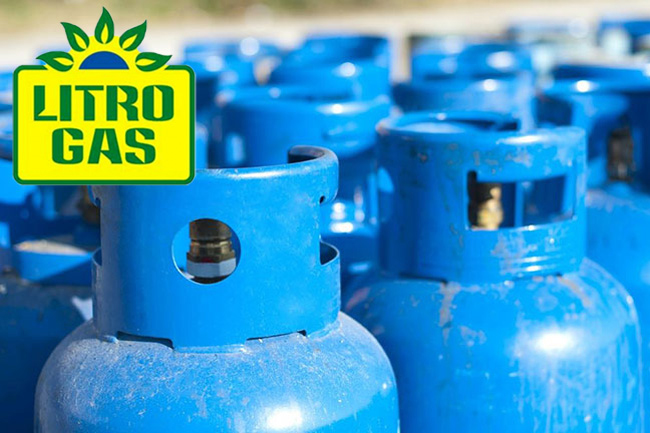Litro says it loses Rs. 2,000 from each LP gas cylinder
March 18, 2022 11:59 pm
Despite having recommenced liquefied petroleum (LP) gas distribution from today, Litro Gas officials are warning that the state institution remains at risk of closure from a staggering Rs.2,000 loss on each cylinder.
Addressing a media briefing today, Litro officials, explaining the possible short-term consequences of this situation, said the sudden devaluation of the Rupee has further complicated its purchases at current market rates.
They explained that if this continues, the company has only three months left to survive without a price hike.
The company said it is facing losses every month and that it has been getting increasingly harder to secure Sri Lankan rupees to purchase US dollars to clear shipments.
At the media briefing, Advertising Manager of Litro Gas, Piyal Colombahettige said: “The global price of a metric tonne of LP has in February was USD 800. If we unload gas purchased at the February rate, we incur a loss of Rs. 200 million. If we calculate the March rate, which is USD 1,018, we will incur a loss of over Rs. 200 million. Taking the March rate into account, we incur a net loss of Rs. 2,000 from each cylinder. If we purchase another shipment at the March contract rate, this will signal the end of Litro Gas. This means that Litro Gas cannot afford these prices based on the current dollar rate anymore. Litro Gas will have to close down due to this factor.”
On Wednesday, Litro Gas halted LP gas distribution, citing a lack of adequate stock for domestic consumption.
The decision was taken following the inability of the gas distributors in the country to secure the necessary foreign exchange to clear the LP gas shipments anchored in Sri Lankan waters.
However, yesterday’s state-owned distributor Litro Gas announced that it was finally able to secure US dollars to pay for and clear one shipment with the unloading process having commenced as of last evening.
As a result, cylinder distributing resumed this morning, with Litro saying that 120,000 cylinders were to be released to the market today.
However, with only one LP gas tanker having being unloaded, the question of how long the stocks would last before another shortage looms remains.
So far, thousands of restaurants and bakeries have been forced to shut down with no gas to fire up their ovens, compounding an already precarious situation for the country’s informal sector.
The need for a permanent solution to how the country can maintain uninterrupted essential supplies has now become critical.












